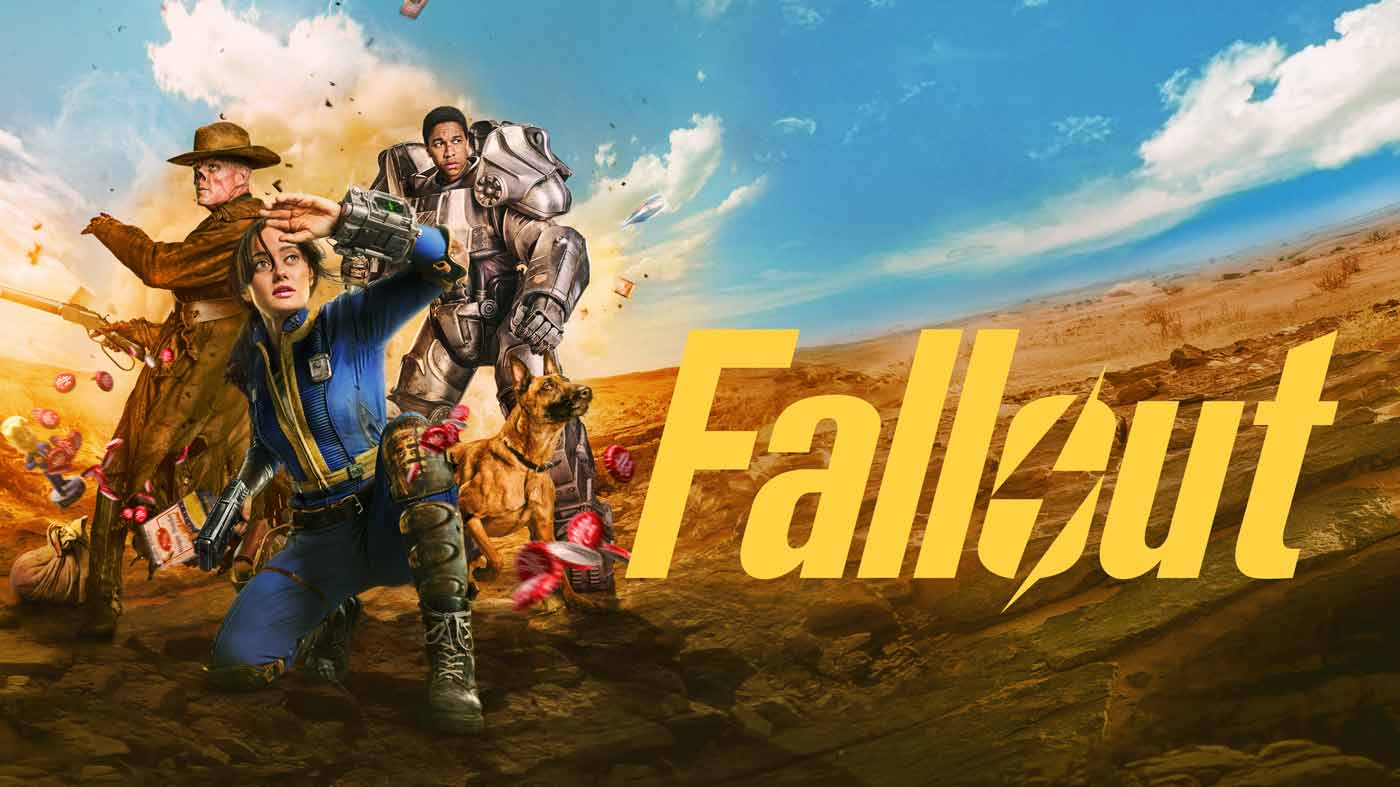
We’ve been lucky as a collective audience that we’ve been graced with the brilliance of Max’s The Last of Us, Netflix’s Arcane, and the sublime sweetness of the Super Marios Bros. movies. Hell, even those Sonic the Hedgehog films have been decent.
Yet, for every one of those enjoyable adaptations we’re still bombarded with Halo: The Series, the latest Mortal Kombat, Uncharted and Need for Speed … all of which, quite frankly, aren’t good (and that’s being nice).
Prime Video’s Fallout, thankfully, errs on the side of the angels. It’s not just a successful adaptation of an iconic video game series, it’s also a thrilling, big sci-fi action epic, filled with shockingly nuanced performances, biting satire of corporate America (oh, the irony) and well-timed moments of levity.
It’s a delicate balancing act for a big budget series to walk as the selling point of this series isn’t the satire or the humor, it’s the action and the characters – in particular noseless post-apocalyptic cowboy, The Ghoul (as played by the brilliant Walton Goggins). So often, big video game adaptations miss the point by trying too hard to either be so faithful to the source material or so radically different to the source material that it swings and misses wildly on the big things.
Fallout does not do this at all. They lean into all the design aesthetics that have become iconic video game imagery, while also allowing the creatives behind the scenes to have their fun with bringing the world and its characters alive. Never once does the series feel like you need to play literally any of the games (minus the end stinger, potentially) to understand what’s happening. Will being a fan be paid off in the show with small winks and nods? It definitely feels that way.
While getting the big picture is important for the series to work, it’s getting the little things right that make this series memorable. Mystery boxes and characters that are either more than meets the eye, or are a blank canvas yet to be painted with toxic watercolors of post-apocalyptic America, keep you just as enthralled with the series as the wild shootouts and mutant Axolotl attacks.
Walton Goggins’ performance is the one that will have audiences talking long after the credits have rolled on the final episode. He plays dual roles of The Ghoul and his pre-apocalypse persona, the movie star, Cooper Howard. Goggins’ performance as The Ghoul is not unlike Ed Harris’ role as The Man in Black from Westworld (more on that later) in regards to his penchant for blood-soaked, gravel-voice monologues. However, unlike Harris’ character, The Ghoul/Howard has layers. The Man in Black could never shake his demons, no matter his timeline. Howard, however, is someone who we see as an actor trying to be a good father, husband and American, in a world that is rapidly coming apart at the seams. It’s a wild contrast to his drug-addled, “kill first, ask questions later” cowboy from hell. And this is why Fallout is so good – it allows a great actor to act beyond the make-up, beyond the sci-fi, and deliver a heartfelt, relatable and lived-in performance.
On the other end of the spectrum are the aforementioned blank canvases – the bright-eyed vault dweller Lucy (Ella Purnell, Yellowjackets) and Maximus (Aaron Moten, Disjointed), a member of The Brotherhood who is desperately searching for more out of life. They are two individuals, who from birth, have been sequestered from the realities of the wider world and have been indoctrinated into believing that the way of their people is the only way people should live (and all others should fall in line to it). Purnell is, for all intents and purposes, the lead of the series, and she delivers a crazy good performance as a character who goes from a wide-eyed damsel to a world-hardened death dealer. Meanwhile, Moten is tasked with one of the hardest roles, as he has to play an emotionally stunted man who believes knighthood will be his escape from the harshness of the world. Outside of the three leads, Kyle MacLachlan, Moisés Arias, Sarita Choudhury, Leslie Uggams and Max Cherry deliver wonderful supporting performances. Also, keep a weather eye out for a cavalcade of cameos in the series.
There still may be one big thing holding you back from diving into Fallout – the Westworld connection. The executive producers of Fallout are Jonathan Nolan and Lisa Joy, the team behind the aforementioned HBO dystopian sci-fi epic. So many of us were burned by that show’s wild inconsistencies, over-reliance on mystery boxes and characters being revealed as robots, and its devolvement into a loose chili of a story that somehow involved robot revolutions, multiple timelines and Aaron Paul.
If this is holding you back, don’t let it. While there are similarities between the two shows, the sins of that show are not committed here. This never relies on cheap parlor tricks to maintain interest, character development is not stunted mid-episode, sharp left turns are never taken without reason and, most importantly, there is a distinct sense of fun in Fallout.
Fallout has already proven to be one of Prime Video’s most successful properties ever, and has been renewed for a second season. There’s plenty of source material for the creative team to draw from – let’s just hope they follow the game plan of character first, action second, and surprises sparingly like this season did.

